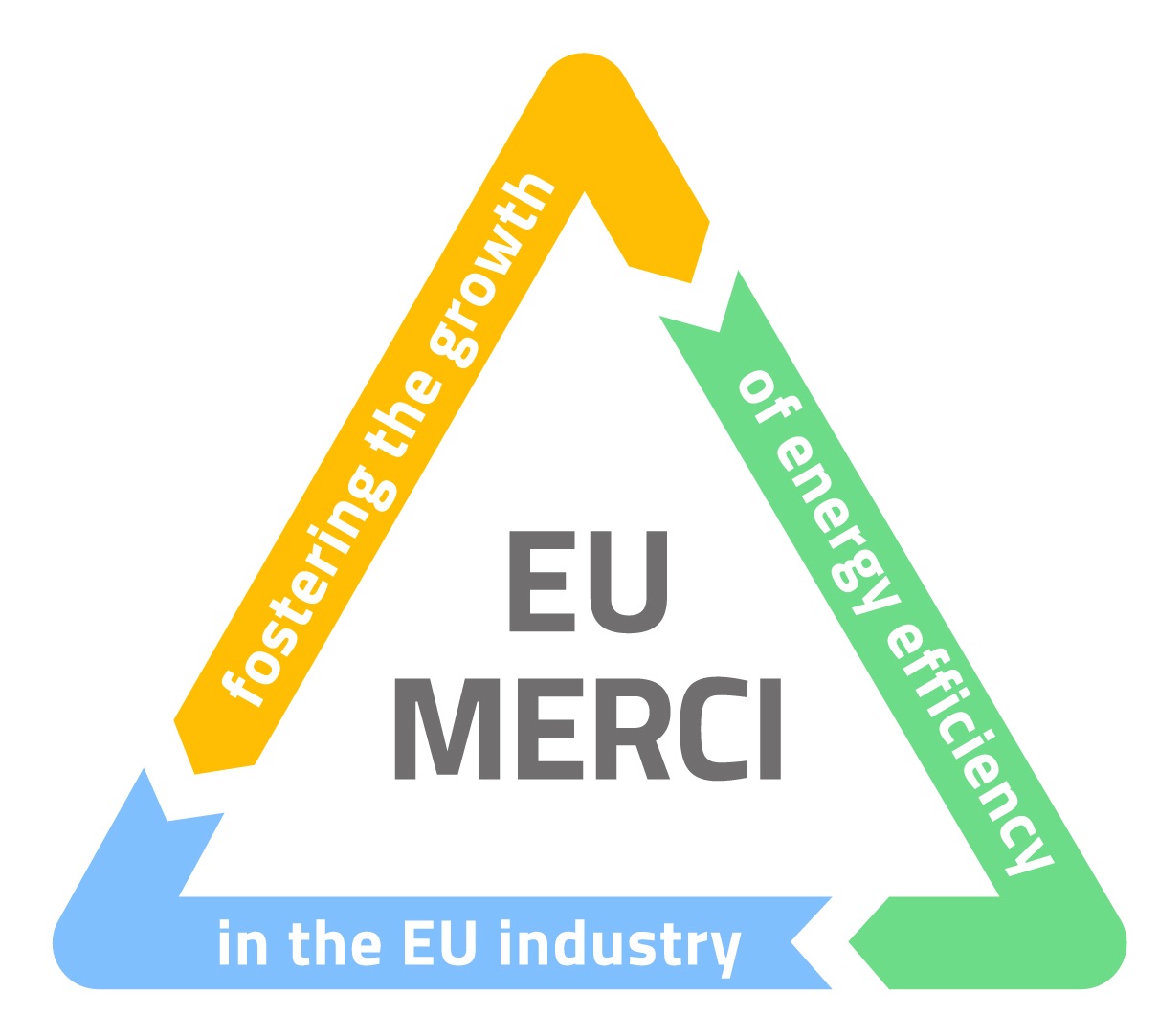Rome, February 2017 – The key points of the Open Conference: Good Practices of Energy Efficiency in the European industry processes, which was held in Rome in late February, were: industry’s needs and policies, good practices and technological transfer.
In EU the 26% of final energy uses comes from the Industrial sector. That’s why the drivers of EU-MERCI project are: rational use of energy, exploiting the Energy Efficiency untapped potential, implementing Energy Efficiency Directive, improvement of the policies.
EU-MERCI has published a “Comparative report on technical specificities of Energy Efficiency Obligations (EEOs) and alternative measures for the Energy Efficiency Directive (EED)” (28 EU Member States + Norway). Within the 29 countries, 71 key measures have been identified throughout: 16 countries have implemented industry-relevant EEOs, most of which have been combined with alternative measures. In 5 countries (Denmark, Hungary, Lithuania, Luxembourg and Poland) the EEOs are the only relevant energy efficiency measure for industry sector. Only 13 countries have implemented alternative measures.
An interesting example of measure is the Italian White Certificate obligation scheme, the most relevant for promoting energy efficiency. It is a trading scheme and it is not selective about technologies or payees. This scheme is based on the obligation, associated on electricity and natural gas distributors with more than 50,000 customers, to achieve a defined target of energy savings yearly (TOE). There are also voluntary subjects which can obtain white certificates: certified ESCO – Energy Services Companies-, companies with an energy manager (in according with an Italian law) or with certified ISO 50001 energy management system, electricity and natural gas distributors with less than 50,000 customers. White certificates attest the achievement of end-use energy savings through energy efficiency improvement in industry, residential and public sector, and they are tradable.
The most relevant alternative measures that have been implemented are: information/training (12 countries), fiscal (9 countries), legislative/regulatory and voluntary agreement.
Among all the alternative measures, financial ones are the most used although they present a lot of problems on monitoring and reporting phases.
Monitoring of EEO schemes in most countries occurs annually or in different times (in the form of an energy audit or summary report): for example in Greece every 6 months, in the UK every 2 years, in Sweden every 4 years, in Hungary and Poland every 4 years, in France there are random checks.
During the conference emerged important topics.
Major players in the energy efficiency market are ESCOs, which propose a 360° integrated and tailored solutions and give support to professionals and operators in performing energy efficiency. The main purpose is to support companies and organizations in realizing processes and systems helpful for the improvement of energy efficiency. The involvement of an ESCO allows to have: qualified technical specific know how, reduced financial immobilizations, incentives availability, monitoring and implementing Energy Management System.
Most of the industries in the manufacturing sector improve their energy consumption applying the ESCOs’ services, in order to reduce their energy costs.
Most industries have been certified ISO 50001, use energy performance indicators and have an energy manager.
An example of Italian good practice highlighted by EU-MERCI has been found into the cement sector. Projects that support the reduction of fossil fuels consumption are: replacement of burners in order to accommodate the use of different fuels, use of biomass to dismiss the grinders for pet-coke preparation, use of biomass (wood waste) in the drying sections of raw material preparation and fuels preparation, use of secondary raw materials.
Good practices are not necessarily those who save the most energy, but sometimes they can be the most environmental friendly, the most economically feasible or the most technically feasible/replicable.
During the conference the speakers have illustrated some examples taken from the Italian industrial sectors. The Italian industrial reality counts for over 4 million enterprises, almost 20% of EU 28 manufacturing sector. Energy is a crucial key factor, but however energy efficiency is going to take off despite the hard times in this sector.
For each industrial sector a comparative profitability index of investments in energy efficiency was built, which takes into account the production function, the competitiveness and the environmental externalities.
The comparative Profitability Index grows with energy consumption, but sectors show different behaviour depending on the company size.
Energy efficiency could become a good driver for the competitiveness of the Italian agri-food industry, indeed it needs a lot of energy for heating, chilling, freezing, moving and lighting. The fields of action to increase the energy efficiency concern: diffusion of BAT on the management of energy resources, participation in national energy efficiency schemes, evaluation of CHP, tri-generation and poly-generation potential, moving to refrigeration technologies less harmful to the ozone, diversification of the energy mix with the use of the renewable energies, in order to increase the share of self-produced energy, mainly from biomasses and bioliquids of animal and vegetal origin.
Another interesting area where energy efficiency could be increased is the iron and steel sector, operating on the reduction of metallic losses, the reduction of energy losses and the reduction of water cooling, as well as improving the energy recovery from off gas and other hot by-products.
The conference hosted notable speakers: Giorgio Franchioni (RSE), Vlasis Oikonomou (JIN), Marcus Hofmann (AEA), Anna Realini (RSE) e Alex Farsan (Carbon Trust), Dario Di Santo (FIRE), Clemens Rohde (ISI-Fraunhofer – EEFig Project), Domenico Rotiroti (GSE), Corine Nsangwe Businge (RSE), Filippo Cirilli (Centro Sviluppo Materiali S.p.A.), Massimiliano Boccardelli (FEDERALIMENTARE), Dimitra Mintsidis (FEDERESCO).
